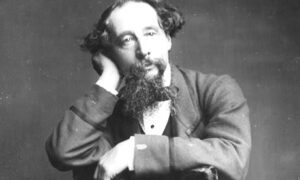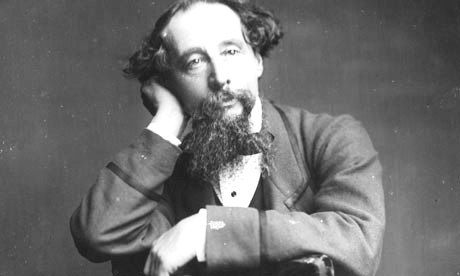
While the 200th birthday of Charles Dickens is being celebrated worldwide this month, few tributes will have focused on the author’s connection to Liverpool.
Renowned for his evergreen works, such as ‘The Christmas Carol’ and ‘Oliver Twist’, revered writer Dickens – whose bicentennial was celebrated on 7th February – had a particular fondness for Liverpool.
The first of his 15 visits during his lifetime was a private engagement in 1838, followed by a brief stay in 1842 while en route to America on a book tour. But the visit that really demonstrated his interest in the city came in 1844, when he held a party to collect money for the Liverpool Mechanics Institution that he helped set up, and he urged the city’s richer citizens to aid the poor.
Local historian, Steve Binns MBE, told JMU Journalism: “Liverpool appealed to him. It had the richest and the poorest in the same place. Every time he came to read in Chester or Manchester on his tours, he would also come by to Liverpool because he felt comfortable here. He’d always stay at the Adelphi – the old one – and he came back in particular for their turtle soup.”
During that period of the 19th Century, Liverpool was considered a conservative town whose richer citizens had few ideas about how to help the very poor. The city’s population was also rising rapidly.
Binns, who works at St George’s Hall, explained:“Dickens wasn’t left-wing but he wanted them to do more for the people of Liverpool than they had done. During his last visit, they got involved with the people and built museums and libraries, and he congratulated them on what they’d done.”
While London was the main setting for many of Dickens’ works, a closer examination reveals how elements of Liverpool’s culture made it into his writing, according to Binns.
“There were these characters like one called Mercantile Jack, a poor sailor who’d just come off a ship,” Binns said with a laugh. “And these policemen called Sharp Eye or Quick Ear, and things like that. There’s a particular pub scene with a guitarist surrounded by girls which is something that is very likely to have been drawn from Liverpool.”
Dickens was also a little eccentric, according to Binns: “He once shot a dog for biting a child and wrote that he’d ‘sentenced it to death’. When he travelled, he could never start writing unless he had all the things he kept on his desk arranged in a particular way, sort of like his home away from home. It was like a compulsive disorder.”
Dickens’ collected works are known to have challenged society, with ‘Nicholas Nickleby’ being a commentary on the school systems, and ‘Oliver Twist’ a reflection of the cruel conditions in the workhouses of the era.
His 200th birthday has been marked in a series of international events which reflect his influence on a 21st-century audience, as he remains alongside William Shakespeare one of the greatest English writers of all time.

